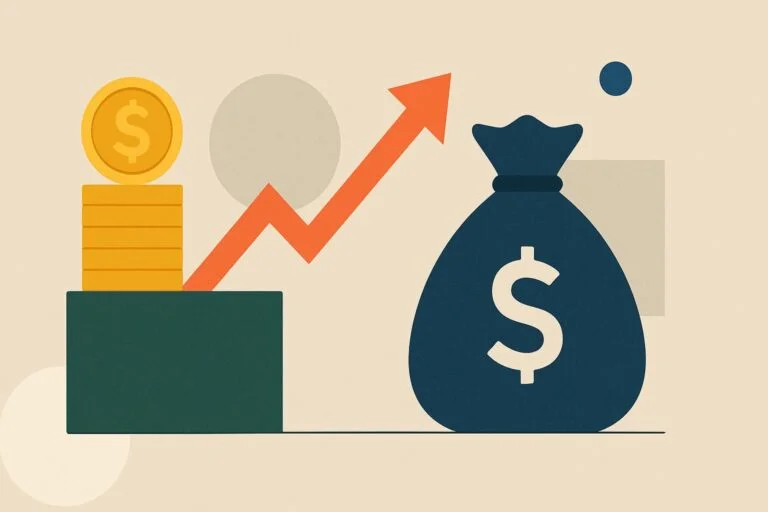How to Build Wealth Without Working 80 Hours a Week

Do you want to know how to build wealth without working 80 hours a week?
You don’t need to sacrifice your health or relationships to achieve financial independence. Instead of grinding 80 hours every week, you can leverage smart strategies—like investing, building passive income, and improving financial discipline—to create wealth that grows while you sleep. With the right mindset and tools, you can make money work for you, not the other way around.
Table of Contents
Why Working 80 Hours a Week Doesn’t Build True Wealth
Working longer hours might bring more income in the short term, but it’s unsustainable. Burnout, health issues, and missed opportunities eventually reduce your productivity. Research from Gallup shows that two-thirds of full-time workers experience burnout at least sometimes—a clear sign that long hours don’t equal long-term success.
Instead, focus on creating leverage: systems, investments, and habits that generate results without demanding constant effort.
Proven Ways to Build Wealth Without Overworking
1. Grow Your Active Income First
Boost your earning power by negotiating raises, learning in-demand skills, or starting side hustles. Then, use this higher income to fuel investments and savings.
Expert Insight: Ramit Sethi, author of I Will Teach You to Be Rich, says:
“Focus on $30,000 decisions, not $3 ones. Big wins in investing and income matter far more than skipping lattes.”
2. Automate Savings and Cut Waste
Set up automatic transfers to savings and retirement accounts. This builds discipline without extra effort. Avoid lifestyle inflation—live below your means so you can invest more.
3. Invest for Compound Growth
- Use index funds, ETFs, or dividend stocks for steady, compounding growth.
- Diversify your portfolio across asset classes.
- Start early—even small investments can snowball over decades.
4. Build Semi-Passive Income Streams
Explore options like:
- Rental properties (with property management support)
- Online businesses or digital products
- Affiliate marketing and content monetization
5. Think Long-Term, Not Quick Wins
The most successful wealth builders plan for decades, not months. They ride out market downturns, reinvest profits, and let compounding work its magic.
Real-World Data That Proves It Works
- The average American retirement account balance is $618,000—built mainly from compounding and consistent investing, not extreme hours (Empower, 2025).
- About 20% of Americans earn passive income yearly, showing it’s accessible to ordinary people (Wikipedia).
- Workers believe they need $94,000 annually to feel financially independent—proof that sustainable wealth is about planning, not just hustling harder (David Lerner survey).
Action Steps You Can Take Today
- Define your financial freedom goal—what does wealth mean to you?
- Track expenses and automate at least 20% of your income into investments.
- Pick one scalable side income stream (e.g., rental property, digital product, or dividend stocks).
- Learn continuously about money, investing, and business.
- Stay consistent and resist get-rich-quick traps.
Conclusion
Wealth without 80-hour weeks is not only possible—it’s smarter. By focusing on income growth, disciplined savings, smart investing, and scalable income streams, you can build lasting financial freedom while enjoying life.
👉 What’s your next step? Share your biggest money goal in the comments below—I’d love to help you refine your wealth-building plan.
FAQs About Building Wealth Without Overworking
Can I really earn passive income, or is it a myth?
Yes, but it requires upfront work. Whether it’s writing a book, launching an online course, or investing in real estate, the effort comes first—then the income keeps flowing with minimal upkeep.
How much do I need to start investing?
You can begin with as little as $100 in an index fund. What matters most is consistency, not the starting amount.
How long does it take to achieve financial independence?
With disciplined saving (30–50% of income) and solid investment returns, many achieve independence in 10–20 years.
